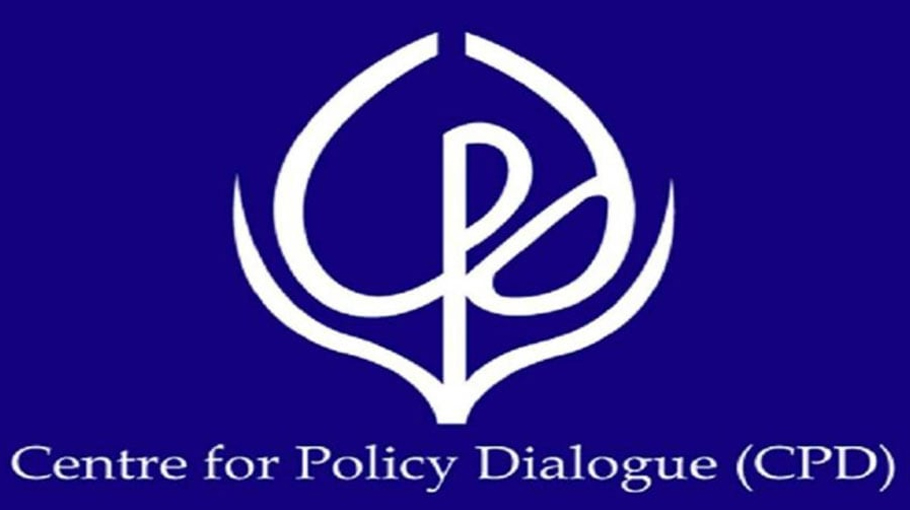CPD for strong market monitoring to get benefits from new budget

The Centre for Policy Dialogue (CPD) on Friday lauded some points of the proposed budget for the fiscal 2024-25 (FY25), urging the government to enhance its market monitoring activities to ensure benefits for consumer from reduced taxes on some essential items in the proposed budget for the financial year 2024-25 (FY25).
“It is suggested to eliminate the current 20 percent supplementary duty on packed powdered milk up to 2.5 kg. This is a good move for local companies and consumers will be benefitted. The duty on some essential commodities has been proposed to reduce. For getting benefits for the measures, market management activities will have to be enhanced,” said CPD Executive Director Dr Fahmida Khatun.
She said this while presenting the analysis of the national budget for the fiscal 2024-25 at a press briefing at Bangabandhu International Conference Centre (BICC) in the city.
The independent think tank organised the media briefing to share its analysis on the Taka 7.97 lakh crore proposed national budget for fiscal year 2024-25 beginning from July.
Finance Minister Abul Hassan Mahmood Ali on Thursday placed the national budget in the Jatiya Sangsad eyeing a 6.75 percent GDP growth rate with an expectation of keeping annual inflation at around 6.5 percent.
Referring to the budget speech, Fahmida Khatun said structure of income tax has been revised to make it more sensitive to needs of the middle class and to ensure equity and distributive justice by raising highest tax slab.
Tax proposals are to be valid for next two years, which will add predictability for the taxpayers, she added.
She said there has been a conscious effort, through fiscal measures (exemption on import duties on intermediates, high tariff on finished goods) to support domestic import- substituting industries.
Fahmida Khatun, however, thanked the government for increasing VAT on cigarette paper or bidi paper from 7.5 percent to 15 percent. “This is a good move from health point of view which will raise revenue,” she added.
To protect the domestic cashew nut industry in the hill tracts region of Bangladesh, she said, it is proposed to impose a 5 percent import duty and a 10 percent regulatory duty on imported Shelled Cashew Nuts.
The initiatives will help indigenous domestic producers, she added.
She mentioned that a proposal to decrease the import duty on Polypropylene yarn from 10 percent to 5 percent to foster the growth of the emerging local carpet manufacturing industry which will support domestic manufacturing local companies.
Fahmida Khatun lauded the proposal to raise the import duty on LRPC Wire from 10 percent to 15 percent to encourage the utilisation of domestically produced high-quality iron and non-alloy steel wire, thereby reducing foreign exchange pressure and fostering the growth of the domestic industry.
She also appreciated the proposal to bolster local aviation companies and enhance industry potential by withdrawing VAT on aircraft engines and spare parts of propellers at the import stage to address the challenges faced by domestic airlines in competing with foreign counterparts.
She said the government plans to extend the tax exemption for IT-enabled services (ITESs) sector by an additional three years, contingent upon the implementation of cashless transactions.
“This extension is welcome in view of the sector's potentials. However, this sunset clause should be complied with since some of the ITESs have been enjoying exemptions from direct taxation since 2008,” she added.
She informed that an appeal was made in the budget speech to MPs not to avail of the current privilege of duty-free import of cars.
“It will be a litmus test of the goodwill of the MPs to forego this privilege by bringing necessary amendments to the prevailing parliamentary privilege and thereby set a ‘noble example’ for others,” she added.
She also thanked the government for entering both health and education into the top five sectors in the proposed national budget for FY25.
"Education sector has received 11.9 percent share of total ADP in FY25 from 11.4 percent in FY24 – a marginal increase. The share of Health sector in ADP FY25 (7.8 percent) has increased from 6.2 percent in ADP FY24 – this indicates a 27.6 percent rise in monetary terms. However, the implementation of projects under these two sectors has traditionally been the major challenge,” she added.
Among others, CPD Distinguished Fellow Prof Mustafizur Rahman, Research Director Khondaker Golam Moazzem and its Senior Research Fellow Towfiqul Islam Khan also spoke during the event.




